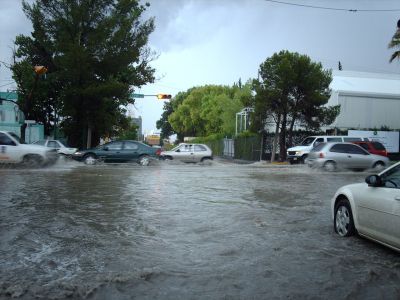Climate change is indisputably affecting weather patterns around the
globe, with Europe recently seeing some of the worst floods in modern
history. Governments are increasing efforts to adjust to these weather
phenomena in a variety of ways, such as developing new guidelines and
practices for managing floods. The EU-funded project
STAR-FLOOD represents one of these initiatives.
Bringing together researchers, both senior and junior, with social,
scientific and legal backgrounds from eight research institutes in six
European countries, the project is outlining recommendations to
implement and align flood risk management strategies in urban areas.
These are intended for use by local stakeholders, national governments
and global organisations for implementing and aligning the strategies of
flood preparation, prevention, defence, mitigation and recovery.
Already, the project team has conducted an extended problem analysis
in six European countries and published four reports on flood
problems/interventions, governance challenges, European flood
regulation, and similarities/differences among project countries. It
also articulated an assessment framework and case study approach on
researching flood risk governance in Europe.
Other accomplishments so far include an expert panel together with
the Working Group on Floods of the Common Implementation Strategy of the
Water Framework Directive in which objectives, measures and
prioritisation of flood risk management strategies were explored. A
report on the workshop's results and various knowledge dissemination
activities was published and disseminated afterwards. Participation in
conferences and events is also strengthening the project's goals, as are
the preparation of a first policy brief on flood risk management and
development of an online practitioners’ guide.
In terms of output, STAR-FLOOD recently submitted and published
papers in several peer-reviewed scientific articles on various topics
related to flood risk governance. Once the project is over, its results
will undoubtedly support authorities and stakeholders in high-risk urban
areas across Europe to design better and more resilient flood risk
governance arrangements.

